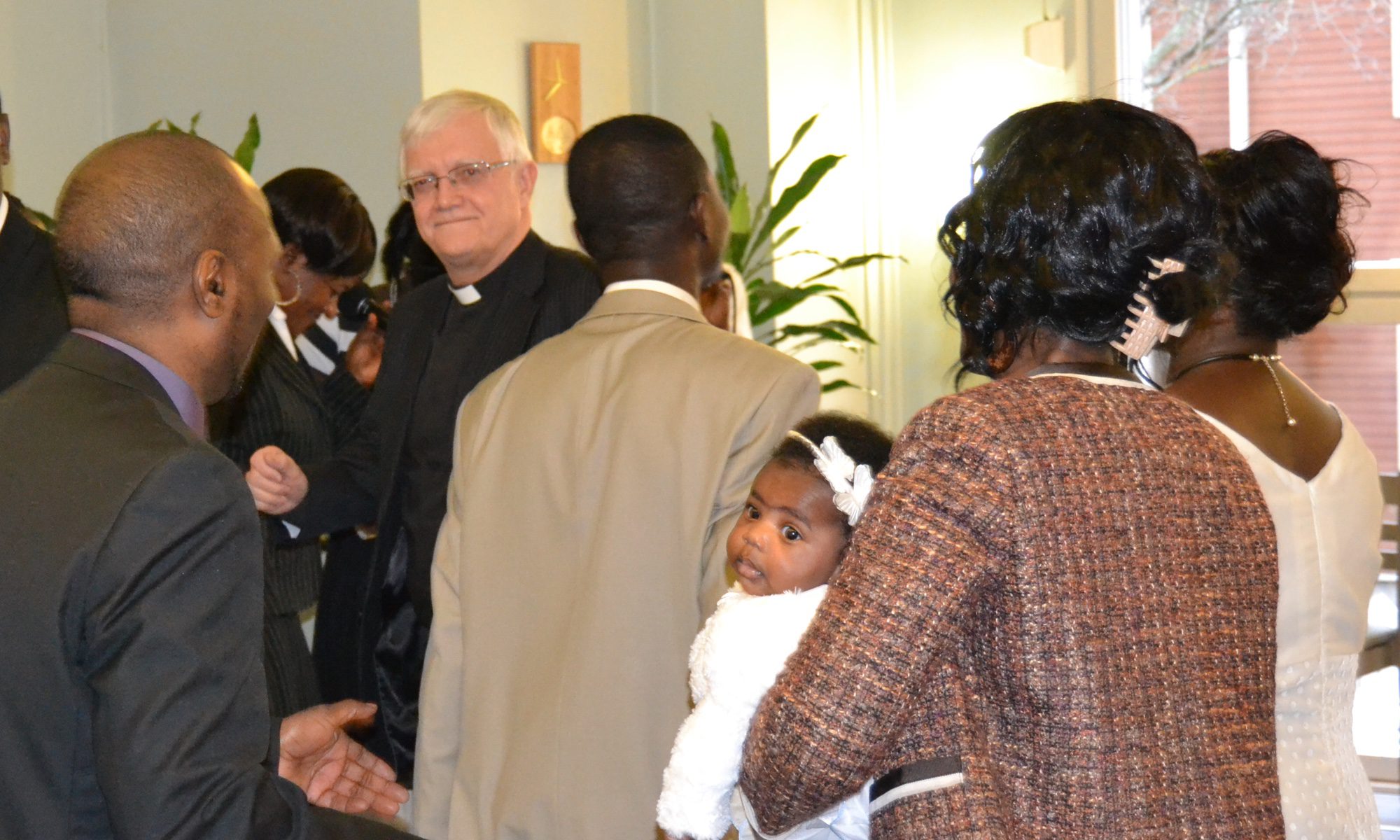Gentiles and the Mosaic Law (Acts 15:1-35)
There have always been some conflicts as to whether or not gentile believers should observe the Mosaic laws. This issue had generated heated contestations among some of the apostles of Jesus Christ and some of the Jewish Christians. The reception of the gentiles into the Jewish `koinonia` was also a challenge in the early church. Peter had to withdraw himself from eating with the gentiles when some Jews visited them in Antioch (Gal 2:10-21).
There have always been some conflicts as to whether or not gentile believers should observe the Mosaic laws. This issue had generated heated contestations among some of the apostles of Jesus Christ and some of the Jewish Christians. The reception of the gentiles into the Jewish `koinonia` was also a challenge in the early church. Peter had to withdraw himself from eating with the gentiles when some Jews visited them in Antioch (Gal 2:10-21).
Observance of the law, more especially, that on circumcision, was key to the Jews. It was commonly believed among them, that without male gentile believers undergoing circumcision, they would not inherit eternal life. This is clear in the report that “And certain men which came down from Judaea taught the brethren, and said, Except ye be circumcised after the manner of Moses, ye cannot be saved” (Acts 15:1). Associating circumcision to salvation was strongly objected by Paul. As a result, the argument ensued between Paul with Barnabas and the circumcision protagonists necessitated sending delegates from the church in Antioch, to the Church Council in Jerusalem, in order to seek council from them (Acts 15:2)
Convocation of the Council
The church council, having received the delegates, gave them audience. In their narratives, it was mentioned that in their congregations, certain of the sect of the Pharisees which believed, contend that, it is needful to circumcise the gentile believers and to command them to keep the law of Moses (Acts 15:5). The council members, having assembled, engaged in comprehensive discussions and debates, with the use of the Old Testaments Scriptures and their encounters with the Spirit of Jesus Christ. Each of those present had the opportunity to speak in turn, in an atmosphere of respect and orderliness.
Peter Speaks from Experience
In his argumentations, Peter narrated his experience in the house of Cornelius as written in the book of the Acts of the Apostles (Acts 15:7-9). He mentioned how God used him to reach out to a gentile family (that of Cornelius). He told that though they were gentiles, God gave them the Holy Spirit just as He gave to them as Jews (Acts 10:1-48). He, therefore, affirmed that God is not a respecter of persons, and that He purifies the hearts of all people by faith. Through our faith in God, He liberates us from the demands of Mosaic law. According to Peter, God receives all people who fear Him and work righteously in every nation (Acts 10:35, Acts 15:9). Peter thinks that the Mosaic law is a yoke difficult to bear because, neither the council members themselves nor their forefathers were able to bear. He agrees with Paul that salvation is only by grace through faith in Jesus Christ and not by the works of the law. Salvation is a free gift of God (Acts 15:11, Eph 2:8).
It is a blessing to submit to people with the necessary ministerial acumen and learn from them. Do not look down on experienced people. Though Paul and Barnabas were very much anointed of God, they submitted to the council of Peter, James and others. Respect for godly authority should not be despised.
Coming to the turn of James, the leader of the council, he concluded the discussions based on general consensus (Acts 15:15-18, 25, Acts 21:25), scriptural evidence (Amos 9:11-12) and the guidance of the Holy Spirit (Acts 15:28), that:
- Those among the gentiles who have turned to God should not be troubled with the law of Moses (Acts 15:19, 28)
Those among the Jews who desire you to be circumcised and obey the law of Moses were not sent from Jerusalem by the Council (Acts 15:24).
Among all the laws of Moses, the gentiles should be counseled to abstain from eating:
- Meats offered to idols or idol worshipping (1Co 10:18-23, 25-33)
- i. Blood
- ii. Things strangled (
iii. Abstain from fornication or sexual immorality (Acts 21:25)
According to the church council in Jerusalem, the gentile believers would do well if they abstained from the above practices (Acts 15:29) and serve God through faith in Christ as already recorded.
Strengthening the Council´s Decision
In order to make the decision of the council more credible and binding, a letter was written, sealed and delivered to some trustworthy persons selected from the leadership. They were to go with Paul and Barnabas to read it in all the gentile churches concerned. The decisions by the council settled all disputes regarding the law of Moses in Christian churches. The congregation rejoiced greatly for the consolation (Acts 15:30-31). This is the wisdom from above (Jams 3:17). This explains why as believers, we are not under any obligation to observe Moses.
When we are confronted with difficult situations, it would be imperative to seek the advice or opinions of experienced ministers in Christ, the Spirit of God, and to engage in inductive and deductive study of the Bible. Genuine answers could always be obtained from these sources.
Prayer: May our Living God grant us His will as we walk with Him. May He bless us with a common understanding and wisdom as we lead His church. In the name of Jesus Christ.


Hi, this is a comment.
To get started with moderating, editing, and deleting comments, please visit the Comments screen in the dashboard.
Commenter avatars come from Gravatar.
God bless you for your encouragement.